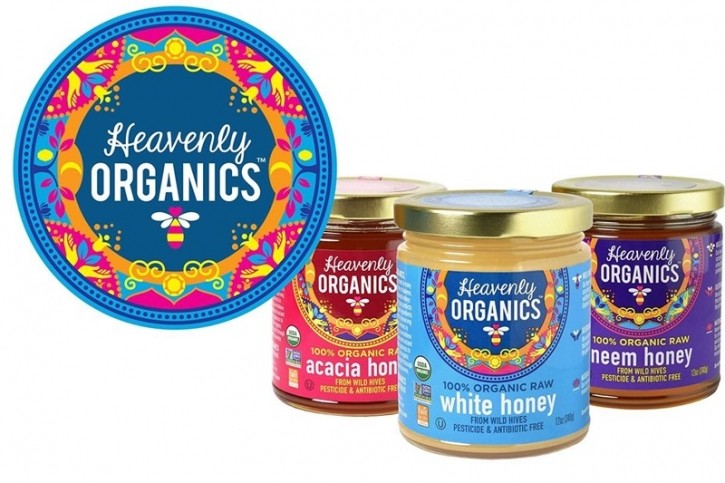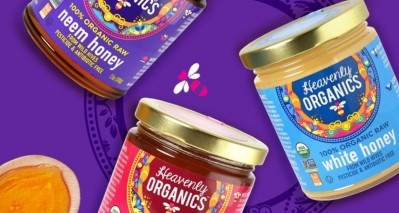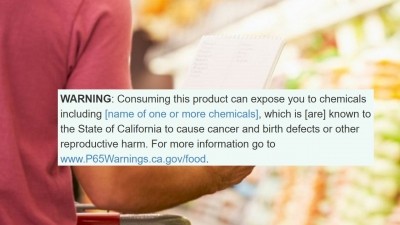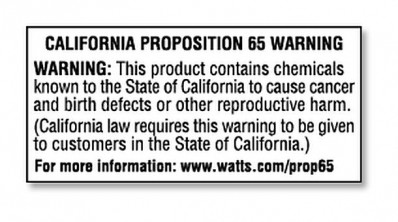Is ‘glyphosate-free’ certification necessary? Heavenly Organics thinks so

Last year, big cereal brands such as General Mills and Post were targeted by lawsuits over traces of glyphosate, a herbicide used on food crops—also known as the key chemical in Monsanto's Roundup—on their products labelled ‘100% natural.’
In both cases, despite glyphosate traces being significantly below the Environmental Protection Agency’s (EPA) legally permitted threshold of 30ppm for cereal grains, the plaintiffs argued that all products with a ‘natural’ label should mean that ‘no toxic pesticides were used,’ and that ‘glyphosate in any amount is not natural.’
“Consumers are unintentionally consuming chemical contaminants through our food system, so we at Heavenly Organics are doing what we can to eliminate this in all of our products,” Amit Hooda, co-founder and CEO of honey brand Heavenly Organics, told FoodNavigator-USA.
The company’s glyphosate-free certification came from BioChecked, and will appear on pack on its products, which are sold in over 75 natural grocery retail chains nationwide (including Whole Foods and Sprouts).
The glyphosate debate
The company, founded in 2005, sources its honey from worker-owned cooperatives in Northern and Central India, as well as parts of the Himalayas, where the company educated locals on “how to harvest honey in a sustainable, bee-friendly and smoke-free way,” Hooda said.
He added that for 10 years of the company’s existence, all three varietals of the honey (White, Neem, and Acacia) have been batch tested for contaminants by independent labs twice per batch, “not just for the certification, as we want to provide our consumers clean honey.”
Various authoritative voices on human health, including a WHO/FAO committee as well as the European Food Safety Authority (EFSA) have declared that glyphosate is unlikely to cause cancer, though the conclusion stood in contrast to WHO’s International Agency for Research on Cancer (IARC), which classifies glyphosate as a ‘probable carcinogen.’
Glyphosate—does it endanger bees?
But human health worries aside, Hooda argued that certification and a guarantee that his company’s products are glyphosate-free concerns the bees as well.
“Heavenly Organics wants to lead the charge and set the bar for contaminant-free honey and we hope this certification brings even more awareness to the use of pesticides and how they are having a negative impact on human health, the environment, and bee colonies worldwide,” he said.
A study published in the Journal of Experimental Biology in 2015 by researchers from the Freie Universität Berlin and Universidad de Buenos Aires found that in honeybees, exposure to levels of glyphosate “commonly found in agricultural settings impairs the cognitive capacities needed to retrieve and integrate spatial information for a successful return to the hive,” creating “potential long-term negative consequences for colony foraging success.”
However, a different study published in The Journal of Economic Entomology in the same year by USDA scientists found that glyphosate is among the ‘relatively safe’ chemicals for foraging bees ‘because they may kill less than 1% bees at the field use rate.’
For Hooda and the Heavenly Organics team, they’d rather not take a chance and hope that there will be a more standardized way to trace glyphosate in honey.
He said: “The government needs to set a tolerance level for glyphosate found in honey and create a universal labeling system, because people have the right to know what’s in their food."









